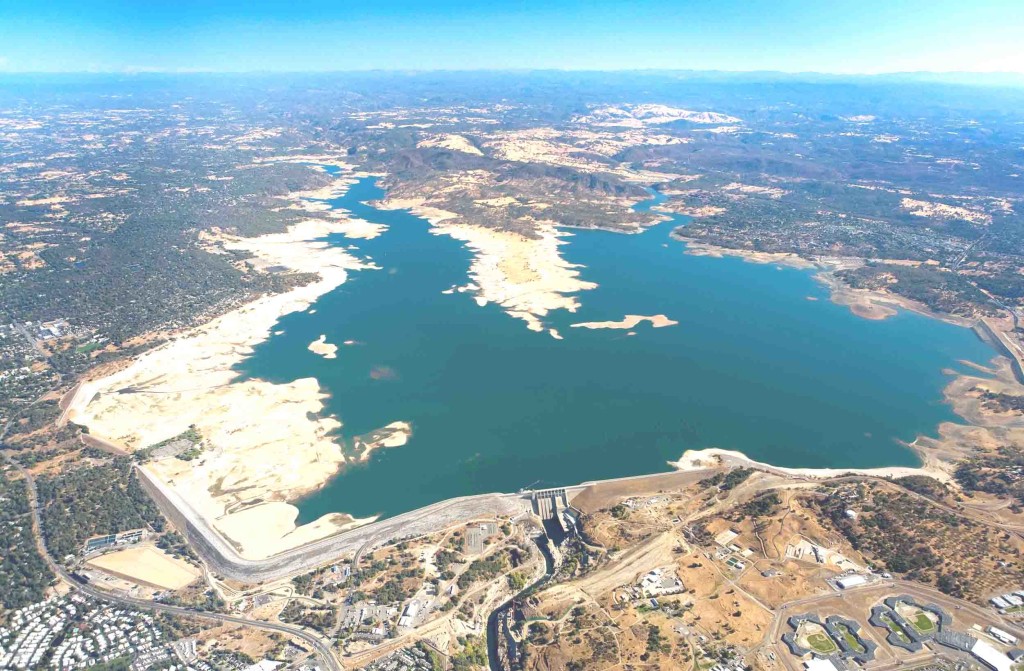
AS WATER SOURCES like Folsom Lake run dry, the Legislature’s response is taking shape, and Senate Bill 848 appears to be a key part of it.
roseville.ca.us
Among the supporters is Senate President pro Tem Darrell Steinberg, a Sacramento Democrat.
Senate Bill 848 is an amended version of a bond that includes investments to enhance water supply reliability throughout the state, Wolk said.
The bill has a growing list of co-authors. Among them are Sens. Steinberg, Kevin de León, D-Los Angeles, Loni Hancock, D-Berkeley, Ben Hueso, D-San Diego, and Fran Pavley, D-Agoura Hills, as well as Assemblymember Susan A. Bonilla, D-Concord, who like Wolk represents Benicia.
“This bill addresses the needs of the Delta and ensures $1.3 billion for ecosystem restoration and sustainability projects, which will benefit both the environment and surrounding Delta communities,” Bonilla said in a statement this week.
In addition, Assemblymember Jim Frazier, D-Oakley, is in the process of being added as a coauthor, Wolk said.
“As California’s antiquated water infrastructure struggles to weather the driest year on record, each passing month makes clear the urgency to equip our state’s water systems for the demands of the 21st century,” Steinberg said.
“Senator Wolk’s proposal deftly navigates the elusive middle ground of California’s historical geographic and ideological differences over water policy, and meets the co-equal goals of enhancing our water supply while protecting the integrity of the system’s linchpin of the Sacramento-San Joaquin Delta.
“This is a well-balanced proposal to benefit the entire state.”
Among the other supporters, de Leon said, “We’ve rolled up our sleeves to develop a water bond that delivers on solutions to California’s water crisis.”
He continued, “This package addresses the needs of all Californians, whether they are urban or rural, live in the North or the South. SB 848 is an investment to ensure safe and reliable drinking water will be available to all residents for the long-term.”
Among supporters outside the Legislature are water agencies, environmental groups and local governments, including those in the San Francisco Bay-Delta region, Wolk said.
“In the coming decade, California faces critical water challenges,” she said, listing not only the ongoing drought but other stresses she blamed on climate change.
She also cited communities that don’t have access to safe drinking water, areas with outdated infrastructure and the crisis in the Delta.
“This amended bond takes a comprehensive approach to provide drought relief, safe drinking water, and water use efficiency in order to sustainably provide for the water needs of communities throughout California,” Wolk said.
“And it does so without harming entire regions of the state, unlike the current water bond or any other water bond proposal,” she added.
She praised her colleagues for collaborating on a water bond that is focused on “meeting the broad needs of regions throughout the state.”
Wolk also lauded them “for continuing to work to provide a viable alternative to the contentious bond currently on the November ballot.”
The amended bond provides $10.5 billion to fund projects Wolk said would address California’s critical needs.
Among the earmarks are $500 million for urgent drinking water treatment for communities that do not currently have access to safe water, $1 billion for “critically needed” groundwater treatment projects and $400 million for wastewater treatment to protect California’s rivers, streams and beaches, Wolk said.
Her bill also would provide $900 million for community-supported habitat restoration in the Delta; $400 million for Delta levee stability funding to reduce the risk of levee failure because of floods, earthquakes and sea-level rise; $1.9 million for drought response and regional water supply development, including water recycling, desalination and water conservation; $3 billion for additional surface and groundwater storage; $500 million for stormwater reuse and capture; and $925 million for watershed restoration throughout California.
Sen. Pavley said the bill improves the 2009 bond that is scheduled to be decided by voters.
“With our state’s water supply under increasing stress, the legislation includes investments in sustainable supplies and regional solutions such as stormwater capture and use, water recycling and groundwater cleanup to reduce the need for water imports,” he said.
Like many compromises, he said, there will be elements that appeal to some, but not others.
“Many stakeholders, myself included, will not be completely satisfied,” Pavley said, “but this legislation balances the needs of diverse geographic regions and water users for the benefit of all Californians.”






Leave a Reply